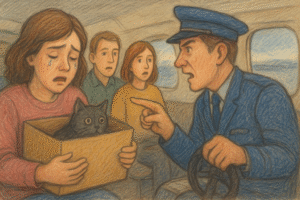There was a girl named Tanya who was brought into a doctor’s office with a bandage over a dislocated ankle. The doctor moved her ankle back and forth. He made some very extreme movements, but Tanya did not feel any pain. He then removed the bandage and discovered that her foot was infected with lesions. He again examined the foot, and deepened the wounds down to the bone. The Doctor wanted to see if there was any reaction in Tanya, but she seemed rather bored.
Her mother then told the doctor about some episodes that Tanya had when she was two years old: “Once I went to Tanya’s room and found her sitting on the floor. She was drawing red swirls with her fingers on plastic. At first, I did not notice, but when I got closer, I screamed in horror. It was horrible. Tanya had cut the tip of her finger and was bleeding and that was the ink she was using to make her designs. I screamed in horror: ‘Tanya, what is wrong?’ She smiled at me and there I understood everything as I saw the blood staining her little teeth. She had bitten her finger herself and was playing with her blood. For several months Tanya’s parents tried to stop her from biting her fingers. But she bit them all off, one by one. The father called her “The Monster.”
Dr. Brand writes: “Tanya is not a monster, but an extreme example or a human metaphor of what life can be without pain. Life without pain can cause us enormous harm. Pain tells us that we are sick and need to be cured.”
The moral of this story is that if there were no pain, health would be impossible, which means that we need pain to recover our health. Something similar happens in the spiritual life: without suffering there is not life of the spirit or a deep spiritual life.
Pain does not necessarily mean that we will recover our health; pain is a means or an alarm that tells us that something is wrong and needs our attention. Similarly, suffering does not necessarily mean that we will deepen our spiritual life. Suffering is a means to deepen our spiritual life, but we have to use this means in a correct way and not in a superficial way.
Suffering is a means to deepen or grow in our spiritual life since it is related with sacrifice, which is the religious act per excellence. We offer or immolate a victim to God in order to recognize His dominion over us. The oblation is a way to give Him the victim and to allow Him to use it as He wants.
Through sufferings we must make this happen with our life. Through our daily sacrifices, we have to immolate ourselves and make of our lives a pleasant offering to Him. He will take our offering and exchange it for supernatural life. St. Teresa of Jesus says: “God takes what we give Him; but He does not totally give Himself until we totally give ourselves to Him.” (Camino de perfección, 28,12).





